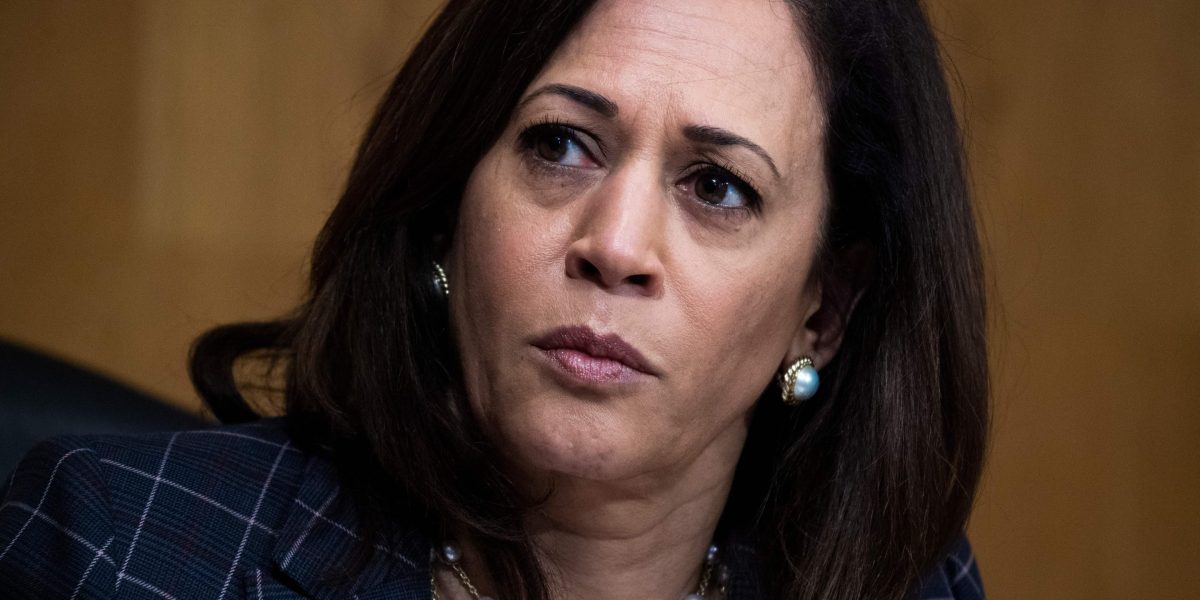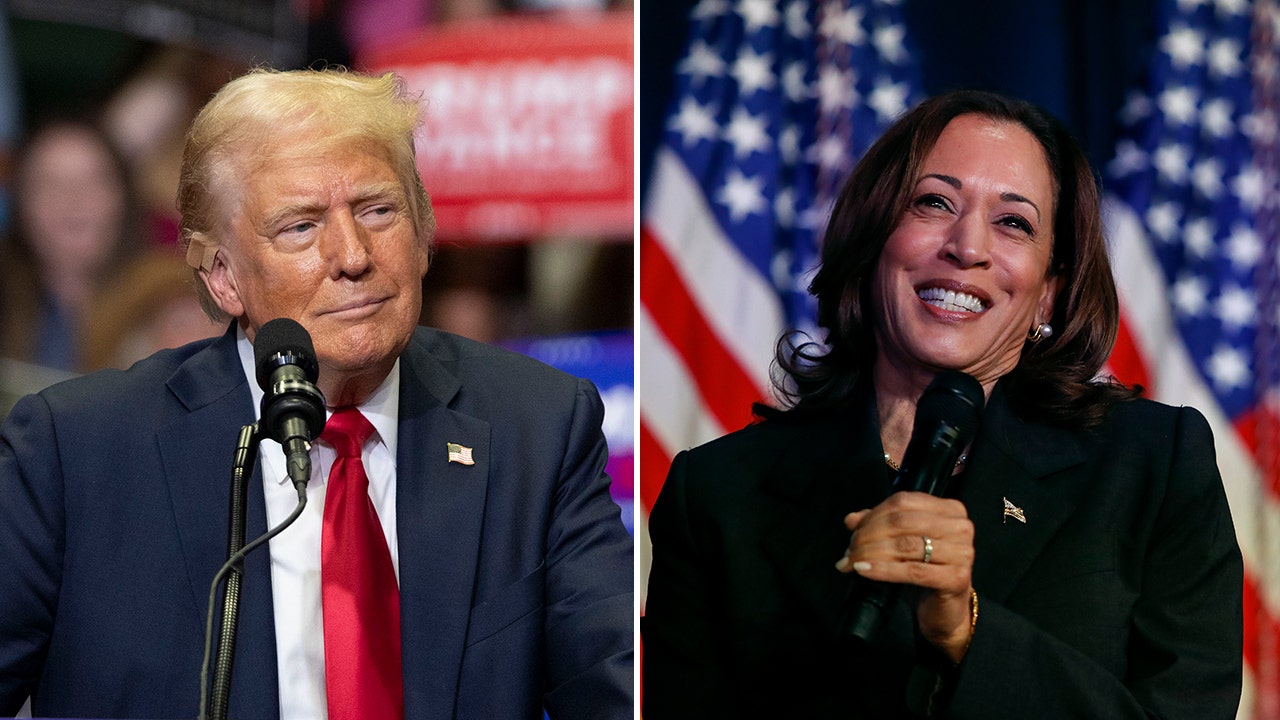

An impromptu phone call between Kamala Harris, then Calif. Attorney General, and JPMorgan Chase chief executive Jamie Dimon almost immediately escalated into a shouting match.
“We were like two dogs in a fight,” recalled Harris in her 2019 autobiography, titled, The Truths We Hold: An American Journey.
The two were locking horns over a proposed settlement Wall Street’s big banks were negotiating with a consortium of state attorneys general over relief for homeowners who were foreclosed on during the Great Financial Crisis. The banks, which included Wells Fargo, Bank of America, and JPMorgan Chase, among others, offered between $2 billion to $4 billion in compensation for California alone. Harris deemed that amount insufficient, eventually the banks raised their offer nearly tenfold.
“During the foreclosure crisis, I took on the big wall street banks and won $20 billion for California families,” Harris said during a campaign speech Monday, touting the achievement.
In her book she further detailed the pivotal, if tense, conversation with Dimon. Frustrated she was making little headway working with JPMorgan’s general counsel, Harris opted to call Dimon—one of Wall Street’s most revered CEOs—directly, according to her autobiography. As Harris told it, 10 seconds later the two were on the phone, tempers flaring.
“‘You’re trying to steal from my shareholders,’ [Dimon] yelled almost as soon as he heard my voice,” Harris writes. To which an indignant Harris replied: “‘Your shareholders? My shareholders are the homeowners of California. You come and see them. Talk to them about who got robbed.’”
The conversation remained heated before Dimon told Harris he would discuss the matter with his board. Two weeks later, according to Harris, the banks upped their offer almost tenfold, offering California a deal that would ultimately result in $20 billion in homeowner relief.
“I’ll never know what happened on Dimon’s side,” Harris said. “But I do know two weeks later the banks gave in.”
Harris and corporate America get (re)acquainted
More than a decade later, California is the epicenter of the country’s housing crisis and Harris is the sitting vice president and presumptive Democratic presidential nominee. She earned President Joe Biden’s endorsement on Sunday, following the announcement that he’d no longer be running for a second term. California’s housing crisis was ramping up long before the Great Financial Crisis, but since then, building has plummeted all over; the state’s home prices and rents are far higher than national averages, and it has the country’s largest homeless population. But for Harris the ordeal shows how she created a solution to address problems in the housing market, one of the nation’s most intractable issues, and in the state where it is most acute, no less. and It’s also evidence of her approach to working with the corporate world, albeit contentiously in this case.
Since her fiery phone call with Dimon in 2011, the two have made attempts to build a productive relationship. They had lunch at the White House in March, as first reported by the Financial Times. At the time the Biden administration’s relationship with corporate America was strained. The president had called for higher taxes on corporations and had been taking an extremely tough stance on enforcing antitrust regulations. In the past, Harris has been far friendlier to corporate America than other Democratic politicians, once referring to Google as her “family.” In recent weeks there have been reports that she is courting CEOs, in the hopes they may shy away from Trump’s unorthodox economic and trade policies.
Harris has also leaned on top executives when she felt they could help her achieve policy goals. For example, in 2021, when the Biden administration was distributing pandemic relief loans she called CEOs of top banks, including Dimon, to see if they could get them to low-income borrowers faster, according to Bloomberg.
But as the homeowner settlement proves, she doesn’t cut big business any slack when it comes to enforcing the law, although the Los Angeles Times did once suggest her handling of the settlement wasn’t perfect because bankers evaded criminal charges.
From $4 billion to $20 billion
It was risky lending practices that fueled the subprime mortgage crisis, which then resulted in what we know today as the Great Financial Crisis. Foreclosures skyrocketed in 2008, and more than 861,000 families lost their homes, CNN reported at the time. That same year, more than 236,000 homes were lost to foreclosure in California alone, according to the Los Angeles Times.
The settlement Harris was negotiating was meant to provide much-needed relief to homeowners impacted by the crisis. At one point during negotiations, Harris abandoned the settlement talks altogether, frustrated by the low-ball offer from the banks. That move paid off when she eventually negotiated a separate settlement for California; in 2012, the banks presented the state $18.4 billion in debt relief and $2 billion in other forms of financial assistance.
“This outcome is the result of an insistence that California receive a fair deal commensurate with the harm done here,” Harris said at the time, according to a release from the day of the settlement. “We insisted on homeowner relief for Californians and demanded enforceability so homeowners actually see a benefit that will allow them to stay in their homes, and preserved our ability to investigate banker crime and predatory lending.”
Under the terms, homeowners could either lower their mortgage payments or sell their home for less than what they owed the bank, thus forcing banks to take losses. Many more Californians than expected opted for the second option, which critics say didn’t live up to the spirit of the settlement, which was to help people stay in their homes—not sell them. In a 2016 interview with the Los Angeles Times, Harris said this unexpected outcome was a result of the overall economic hardship the housing crisis caused.
“There was a large number of homeowners who just didn’t want to have the burden of the debt because they had also lost their jobs,” she said.















